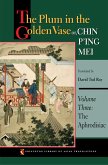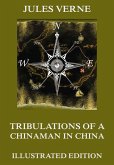In "Chin-Chin; Or, The Chinaman at Home," Ki-tong Tcheng presents a nuanced exploration of Chinese culture and identity through the lens of a Western audience's perceptions. This work elicits rich imagery and vivid descriptions that celebrate traditional Chinese life while simultaneously critiquing Western stereotypes. Tcheng's prose blends humor and earnest reflection, deftly navigating the cultural intersections of the late 19th and early 20th centuries. As a product of its time, the book reflects the complexities of transnational dialogue, revealing both admiration and misunderstandings inherent in colonial interactions. Ki-tong Tcheng, a Chinese-American author, emerged from a background deeply steeped in the cultural dichotomy between the East and West. His own experiences of immigration and assimilation undoubtedly informed his desire to bridge these disparate worlds through narrative. By engaging with his subject matter, Tcheng sought to illuminate the richness of Chinese culture while advocating for a more nuanced understanding of his people among Western audiences. Readers looking to deepen their comprehension of cultural identity and the historical context of East-West relations will find "Chin-Chin" enlightening. Tcheng's work is a vital contribution to discussions on cultural representation, making it a worthy read for scholars and casual readers alike.
Dieser Download kann aus rechtlichen Gründen nur mit Rechnungsadresse in A, B, BG, CY, CZ, D, DK, EW, FIN, F, GR, H, IRL, I, LT, L, LR, M, NL, PL, P, R, S, SLO, SK ausgeliefert werden.
Hinweis: Dieser Artikel kann nur an eine deutsche Lieferadresse ausgeliefert werden.









